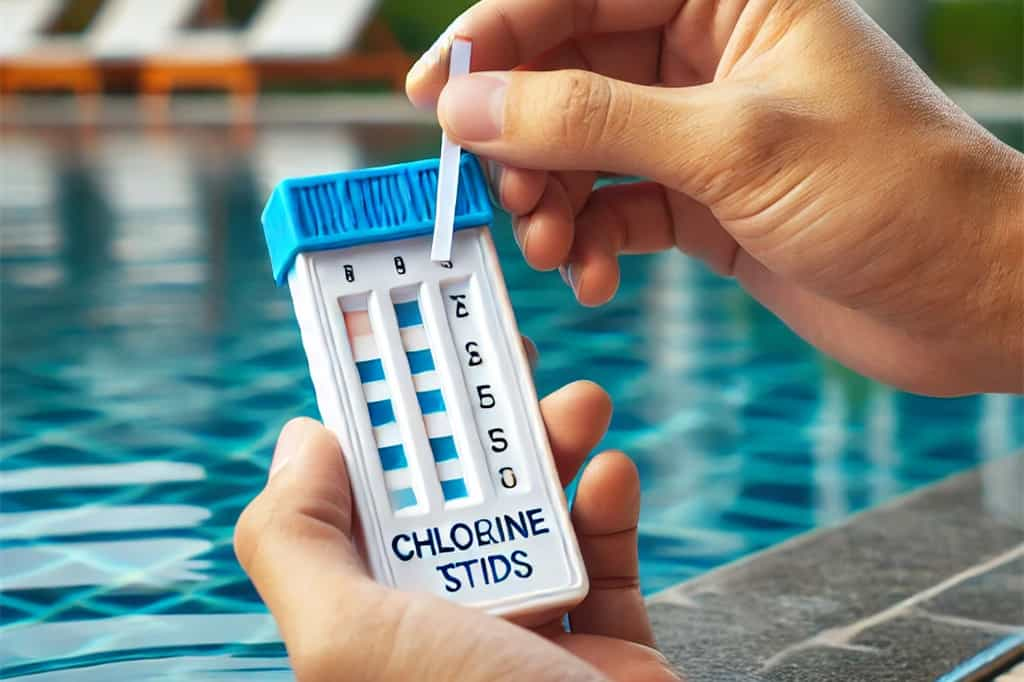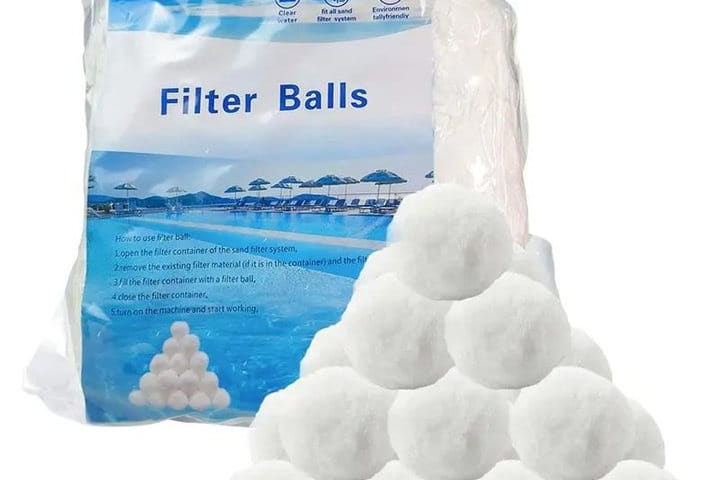If you’re using filter balls for your pool or other filtration systems and finding that their efficiency is not quite up to expectations, you’re not alone. Many users switch from traditional sand or cartridge filters to filter balls with the hope of achieving better water clarity and filtration performance, but sometimes the results fall short. So why exactly is the filtration efficiency of your filter balls so low? In this blog, we’ll discuss the potential reasons behind this issue and offer tips on how to get the most out of your filter balls.

Understanding Filter Balls
Before diving into the causes of low efficiency, it’s essential to understand what filter balls are and how they function. Unlike sand, which is commonly used in pool filters, filter balls are made from various materials, typically polyethylene fibers, designed to trap dirt, debris, and small particles in the water. They are lightweight, easy to handle, and can filter out particles as small as 5 microns.
Filter balls are often seen as an upgrade from sand because they offer advantages like:
- Better filtration capacity for finer particles.
- Lower resistance, which helps improve water flow.
- Easier maintenance and replacement.
With all these benefits in mind, it can be frustrating when they don’t seem to work as well as expected. Let’s now examine the possible reasons why your filter balls may not be performing optimally.
1. Incorrect Installation
One of the primary reasons why the filtration efficiency of your filter balls may be low is incorrect installation. While filter balls are often marketed as easier to use than sand, improper placement within the filter housing can significantly reduce their performance. Ensure that you fill the filter tank with the correct amount of filter balls and that they are evenly distributed inside the filter. Uneven distribution can lead to water bypassing the filter material entirely, which results in poor filtration.
Additionally, verify that your filter housing is suitable for filter balls. Some filters may not be compatible with this type of media or may require specific adjustments for optimal efficiency.
2. Overloading the Filter
Another common issue is overloading the filter. Even though filter balls are designed to trap finer particles, they can become clogged more quickly than traditional sand. If your pool or water system is heavily contaminated with debris, dirt, or algae, the filter balls can become saturated, reducing water flow and the system’s overall filtration efficiency. When the balls are too full of dirt, they lose their capacity to filter effectively.
To prevent this, it’s important to maintain regular cleaning routines. Backwash the filter or manually rinse the filter balls periodically to remove the trapped debris. If the filter balls become too clogged over time, they may need to be replaced to restore the filter’s efficiency.
3. Poor Water Circulation
Filtration efficiency is closely tied to the overall circulation of the water in your pool or system. If water circulation is poor, even the best filter balls won’t be able to perform their job effectively. Ensure that the pump and filtration system are operating correctly, with no blockages or pressure imbalances. If the water isn’t circulating properly, only a portion of the water may pass through the filter balls, leaving much of the debris unfiltered.
Regularly check the pool’s pump, plumbing lines, and jets to ensure optimal water movement. Sometimes, adjusting the flow rate or increasing the circulation time can make a significant difference in how well your filter balls perform.
4. Low-Quality Filter Balls
Not all filter balls are created equal, and the quality of the balls you are using can directly affect their filtration efficiency. Some lower-quality filter balls may not have the right density, size, or fiber composition to trap fine particles effectively. If you notice that your filter balls seem to clog quickly, allow debris to pass through, or don’t last as long as expected, it could be an issue with the quality of the product.
When purchasing new filter media, it’s crucial to source them from a reputable filter balls manufacturer. High-quality filter balls are designed to have consistent performance, higher durability, and better filtration capabilities. Always read reviews, check product specifications, and consider the reputation of the filter balls manufacturer before making a purchase.
5. Inadequate Pool Chemistry
If your pool’s chemistry is out of balance, it can hinder the effectiveness of the filtration process, regardless of the type of media used. Imbalanced pH, high levels of calcium, or excessive use of chemicals like chlorine can lead to cloudiness and buildup of scale or deposits that reduce the efficiency of filter balls.
Regularly test and adjust your pool’s water chemistry to ensure it remains within the ideal range. Proper water chemistry not only helps the filter balls work more efficiently but also extends their lifespan and improves overall water clarity.
6. Lack of Proper Maintenance
Finally, one of the most common reasons for low filtration efficiency is simply a lack of proper maintenance. Like any filter media, filter balls require routine care to continue functioning at peak levels. If left unchecked, they can become overloaded with debris, reducing their ability to filter effectively. It’s important to follow a regular cleaning schedule, monitor the water pressure in the system, and replace filter balls as needed.
Many pool owners choose to buy pool filter balls because of their low maintenance and ease of use. However, even with these benefits, neglecting regular care will eventually lead to decreased efficiency.
Conclusion
If the filtration efficiency of your filter balls is lower than expected, there are several factors that could be contributing to the issue. From incorrect installation to poor water circulation or low-quality products, identifying the root cause is key to restoring optimal filtration. To ensure the best performance, always purchase from a trusted filter balls manufacturer and perform regular maintenance on your filtration system.
For those looking to upgrade or replace their existing filter media, consider buy pool filter balls from reputable suppliers that prioritize quality and durability. By following the best practices for installation, maintenance, and water care, you can ensure that your filter balls will provide the high level of filtration efficiency they are designed for.

